 Akuma to Love Song (2021): A Review
Akuma to Love Song (2021): A Review
Cheewit Puer Kah Huajai Puer:
The misalignment of reality versus the dream
☯
Please be aware of minor spoilers below.
☯
Cheewit Puer Kah Huajai Puer Tur is an interesting drama to watch, quite gripping, unique in its own way and highly fluid maintaining the audience at the edge of their seats throughout its 18 episode run.
☯
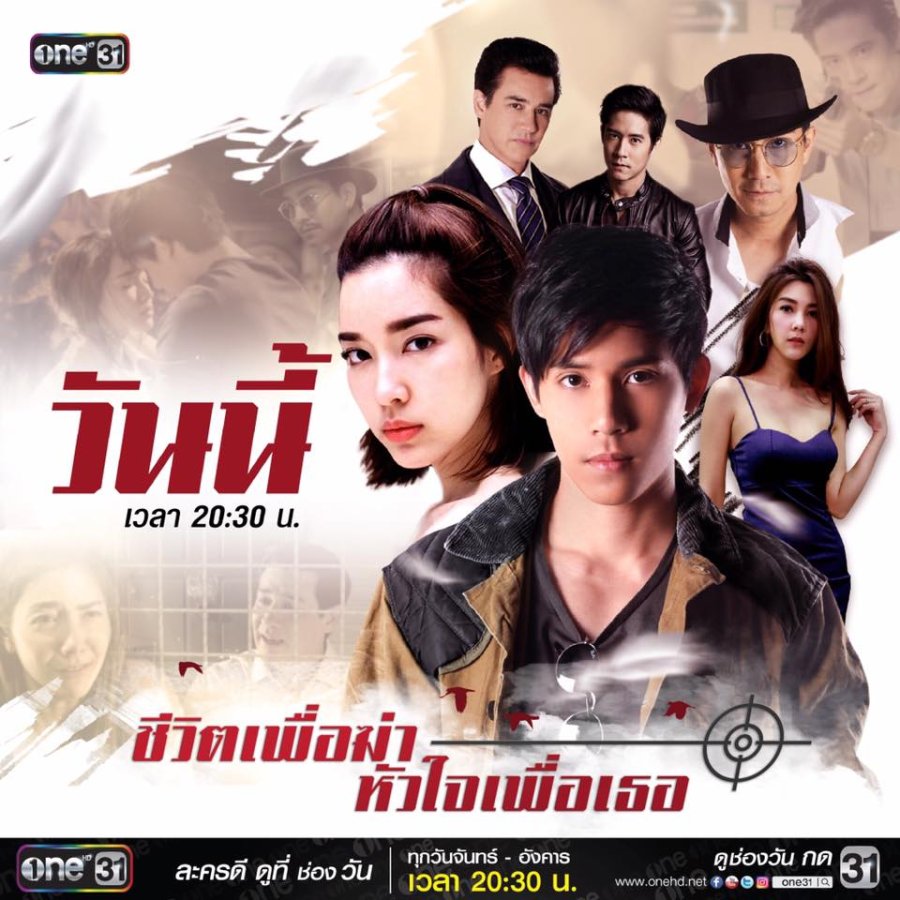
☯
The story
☯
Cheewit Puer Kah Hua Jai Puer Tur has an original premise, as far as originality goes in dramaland’s over-recycled themed universe without banalizing over-styled topics, describing the love story between a professional hitman and a kind easy-going artist, seemingly right out of Christine Feehan novel, minus Dante’s Beatrice female lead personification.
Focused on the counter-balance between the main leads, Wayu (Jespipat Tilapornputt), the Yang, the movement, the raw, powerful darkness, the antitheses of Rin’s (Monchanok Saengchaipiangpen) Yin inner calmness, gentleness, light, Cheewit Puer Kah Huajai Puer Tur alternates between the harsh and the soft realities of life. Existential vicissitudes of corybantic emotional rhapsodic foisons.
☯
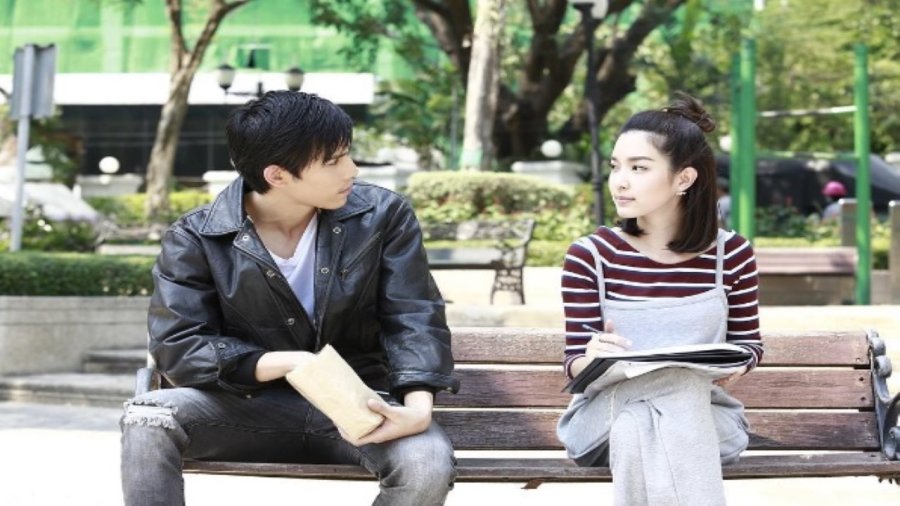
☯
A man who was brought up to dispatch whomever his adopted father, uncle Surasee told him to, falls in love with a woman who inspires him to be better as a person, as a human being, bringing out the goodness in him. Even betas have a voice and challenge Alphas at some point or another in a wolf pack, but while here the fight is for supremacy and leadership, in Cheewit Puer Kah Huajai Puer Tur, the fight is for liberty. In a lambent wit, Wayu stands up to Surasee for his freedom, for his inherent right to live his life as he sees fit, while unconsciously attempting to expiate and extenuate his wrong-doings in a metamorphosical raison d'être. Through his love for Rin, Wayu develops a willingness to lead an honourable life, finding solace and peace in their mutual feelings for one another, in their joy and their contentment, albeit short-lived ones with a hefty price-tag attached to it. This makes the story arcadian ipso facto poetic, although surreptitiously realistic and thoughtful.
☯
The characters
☯
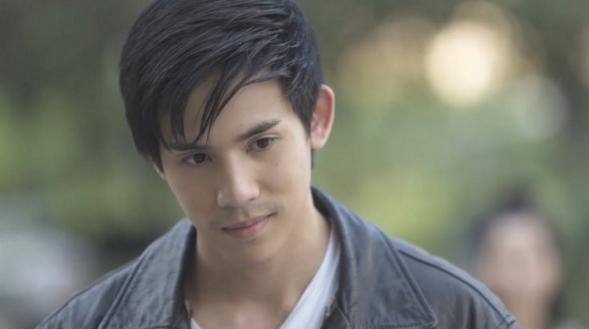
☯
Wayu
Every tormented soul ought to have salvation, ought to be given a chance to redeem itself and follow light either in the form of love from another or rediscovered love for themselves or both. Life is not either-or. Here Wayu finds in Rin the motivation to change, to evolve, to grow and to become the person he is inside, a good man who has made wrong choices as a result of his upbringing, acknowledged them and wants to move forward by leaving his past and present behind and creating a new future with the love of his life.
The thing is a past swept under the carpet like dust will sooner or later come back to surface and then it will cause more pain than if it had been addressed in the first place. The minds of human beings, however, do not follow mathematical formulas of common sense all the time. If they did, they would be 100% productive and 100% miserable; they would be machines, continuously striving for the never-ending purpose of acting rather than thinking. More often than not, people and their values are tested to make them stronger through the surpassing of life challenges. Wayu’s biggest challenges are his past and his present, not aligned with the version of the future he wishes to offer himself amidst the contextual spoonerism of the city where the Lakorn unravels.
☯
Rin
Rin is extremely bonhomie and beguilingly benignantly towards Wayu to whom she practices a kind of a selfless devotion attitude as if he was Apollo, Fu-Shen or Hotei to be veneered and prayed to at a temple, here being wherever he was, the park, the bar that was his official workplace or his bedroom. All very lovey-dovey worship until Rin experiences his shadow self through a non-participatory observation of who and what exactly he is in practice rather than through a theoretical exercise aimed at fulfilling the requirements for a state-of-the-art literature review. Love illusion is like a glass wall that sooner or later shatters its own solipsism.
☯

☯
This harmonious way of portraying lead characters is prevalent in Thai Lakorns. Still, each story adds human depth to their character's personality, which distinguishing a drama from the other while marvelling viewers. Here, take the 2nd male lead Sarut (Akarat Nimitchai).
☯
Sarut, the 2nd Male Lead
A know-it-all, over-confident full of himself man who suffers from the Procusto syndrome with all the less positive aspects the medical condition entails pertaining Rin. Obviously, he didn’t get the memo about the consequences of trying to destroy Wayu. If he had, maybe he wouldn’t have been such a beadledom snoot, instead, would act in a more luminary fashion towards him. Going guns blazing all donnybrook on Wayu, won’t get him Rin’s love at all. On the contrary, it will make her dislike him even more. If emotionally, Sarut had half a brain, he would have known that.
As he didn’t, he allowed himself to be embroiled in Thanatat’s business by committing a crime to protect him in order to marry Rin and, of course, demanding her to love him in return. As the Lakorn progresses, so does Sarut’s sordidity. His obsession for Rin grows bigger and bigger and bigger into a pathology of actions with no return.
☯
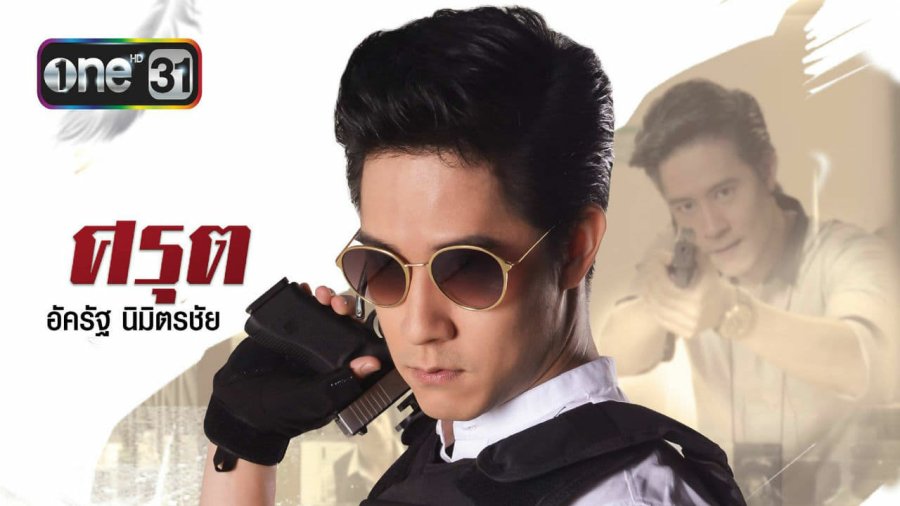
☯
Sarut would have also known about this, about karma and the outcome of being a corrupt police officer at the end of the game. He’s a vivid example of a corrupt law enforcement officer who puts his personal interests above of those of the law and exists in every society, the same way that exit good law enforcement officers everywhere. Some people are good, some people are bad, some people are good and bad.
Everything Sarut does is as flagitious as a dog barking up the wrong tree with arrogant aplomb, but he’s not the only one.
☯
The father, the uncle & their minion tribe
In Cheewit Puer Kah Huajai Puer Tur, evil deeds are the norm, and good deeds are the exception. There’s a sort of galvanizing provenance amidst the bad swashbucklers that played with guns rather than swords: Surasee with his old retired minion Mao and new cocky minion Sun who had some egotistical low self-esteem issues with Wayu versus the hypocritical daedal daddy drug lord Thanatat with his faithful cat's-paw minion San.
Surasee (Phutanate Hongmanop) is rather ambiguous. He embodies both the Yin & Yang, the saint and the sinner, the good and bad at some point throughout his life, depending on the circumstances and what is best suited. He’s the best friend to his inner tribe and the worst enemy to those that threaten the person he holds dearest to him: Wayu.
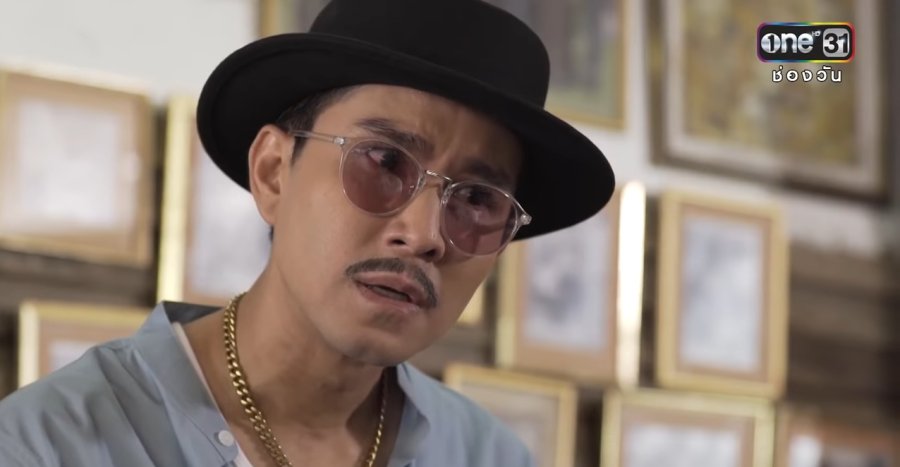
Mao (Thanayong Wongtrakul), Surasee's trusted general is a solid supporting character throughout the Lakorn, like an older brother. Sun (Pollapakk Vacharaponghiran) magically disappears out of the picture after getting taught a lesson he most likely would not forget, although he appears to have done so perhaps out of a sudden repentant consciousness and moved on to greener pastures. His existence did, however, advance the story and created the necessary conflict to force the main characters into action, which is a positive. He was replaced by Win, a good guy whose purpose in the story rather than propel the leads into action, supported them in action, by having their backs!
Thanatat (Willie McIntosh) is a controlling father to Rin. He wants what’s best to her. Fathers usually want the best for their children, and that includes protecting them or at least trying to protect them from nefarious relationships with men whom they consider unworthy of them financially or morally. The way he goes about it, however, is a bit over the top and doesn’t produce the best results for either one of the parties putting them at daggers with one another. As a character, he’s utterly despicable overall despite his concerns for Rin as a father which many will relate to if they’re parents albeit in a healthy manner.
☯

☯
His only minion San (Dew Pattarapol Kantapoj) is pretty consistent throughout the series like his boss. He ought to get credit for that lack of progressive evolution that attenuates karma, here in reverse. It seems that he has all his planets on retrograde in his astrological birth chart amalgamated in one house, the Thanatat commons one, adjacent to the main mansion.
Corrupt and immoral deeds à gogo in a preamble for disaster versus Rin and Wayu’s clamant need for being with one another in peace. The bona fide of their love is epistolary Ciceronian akin to embosom ikebana.
☯
Marisa, the 2nd Female Lead
The story would not be complete without the presence of the female antagonist or 2nd female lead, Marisa (Virithipa Pakdeeprasong) who comes across as obsessively dense towards Wayu like Sarut towards Rin. She wants Wayu whom she tries to protect until the end, at all costs never really understanding or bothering to comprehend that love that is not freely given is just a castle in the sky and is not worth having.
☯
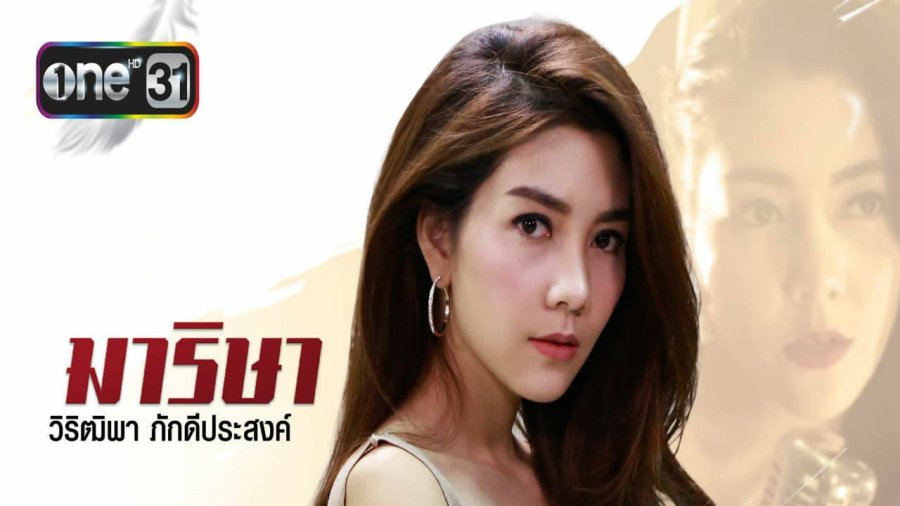
☯
Marisa is a very weak 2nd female lead and very one-dimensional, which is a shame as normally 2nd female leads have more spunk and really make the story their own. Here Marisa just seems to wander across the Lakorn. It's not that her impact is insignificant; it's just not that significant and rather dull. As a character she's not memorable, she's rather silly, always wanting to be dependent on Wayu as if he was a drug addiction which she hasn't sought a cure for, despite having been shown that here love was one-direction only and not reciprocated.
☯
Overall
Cheewit Puer Kah Huajai Puer Tur is inherently dark from beginning to end. Yet, the story of redemption, the quest for salvation and rescue from the shadow self is so Romeo & Juliet almost all the way to the end... Lovefool... that is romantic. ‘Love me, love me…’ gives way to Everybody Hurts and Happy Ever After following the punishment of all the bad guys, that get punished, while the good get rewarded. Life is fair, and all is good in the world.











